- Home
- Stephen Hunter
I Ripper Page 5
I Ripper Read online
Page 5
“We’ll find a lovely private spot, then,” she said, and led me to the right, into the darkness, down Hanbury.
We drifted slowly, my love and I, along the dark block, lost in a canyon of dark brick, illuminated here and there by a late reader’s light. Ahead, another block away, we could see the brightness that was Commercial Street, and see the traffic upon it, the drift of the gals and beaus and visitors and innocents. As a twosome, we were too close, not quite a couple but not strangers, either. Ghostlike apparitions drifted by us now and then, a Judy, a John, an early-rising workman, who could tell?
Near the end of the block, as I had anticipated—for I had probed the area for possibility a few days earlier—she indicated a rightward turn with her head and put her weight against a door, and it opened to reveal the dark passage that was the throughway to the backyard of 29 Hanbury. We slipped along a dark corridor, passing a mute stairway at the left, and came to nestle near the way out.
“Got a present for Annie, your lordship?” she asked. She had a rheumy, wet slough to her voice, as if her lungs were full of death, and seemed a little blurry, not drunk as a sailor but in that zone of vagueness that the gin confers before it hammers one into full-bang disorientation.
I pressed the coin into her hand, and she took it greedily, sliding it into some hidden pocket of her voluminous dark dress. I said, “Come, let’s move a bit, into more privacy.” I had a fear that this place was too vulnerable, that noise would rise through the house or that another Judy and her companion of the minute might enter 29, not knowing it was occupied.
And here is where what happened began to deviate from the ideal. I had imagined a hundred times since picking the site how we’d end up in the backyard, and how I’d cut her hard, and how fast she’d die, and how I’d do what must be done, and how smoothly it would all go. But no plan survives contact with the world beyond the mind.
“Sweetie, here’s fine, come on, then, let me pull up me petticoats and we can—”
As if it had a will of its own, my left hand shot out like a snake and bit hard at her throat. Recalling now, I realize that I was not prepared to be defied, I was certainly not willing to argue, and my threshold of frustration was dangerously low, though I had been unaware, thinking myself blissfully composed and utterly in control of both self and lady. It was not so. My hand clamped at her larynx and began to squeeze with the full force of my musculature and my will behind it. Even in the dark, I saw the surprise light her face as the oxygen was pressed off, and though so cinched she could not cry out, her throat’s machinery began to manufacture unintelligible noises of despair, dry clicks and hitches, half-grunts, spitless, noiseless screams, the sound of inner structures rubbing frictively against each other, words that no letters exist to approximate, a whole product line of constricted-throat expectorations, and one hand feebly came to beat against my pinioning arm. I knew this would not do, not here, not indoors, where at any moment we could be interrupted, and so with my right hand, I grabbed her fleshy biceps and put force behind, bumping her along, if you will, shoving her with my chest, guiding her with one hand to arm, one to throat, all the while strangling. It was as weird a dance as has ever been danced, an uncoordinated shuffle of bodies set against each other with the ultimate progress to the way out ten feet, then seven, then four away.
Three, two, one, and we were out the rear door. Still almost carrying her—she was not light, but the intensity of the struggle released strange fluxes of strength through my limbs—I took her down three steps, pivoted to the left, and braced her hard against the wooden fence there, well constructed, as I have said, and able to sustain the force of my thrusting her body against it.
In a flash, I let go of her arm and reached back to withdraw the Sheffield from my belt, aware the whole time that the episode had completely veered south from perfection and become a graceless, cruel thing. Whether she was dead or not—her tongue seemed to protrude from her lips, and her eyes were shut—I could not tell, but if so, just so, and if not, almost so. I struck her neck hard with the knife, blade belly sinking into the softness, and drew it strong around, letting my left hand slip off her throat at last.
That was a moment. She was propped against the fence, unsupported by me, her throat ripped but not yet producing blood, utterly still, quite vulnerable. I struck her again, again felt bite of knife’s belly, again drew down and, pivoting myself, around until my natural length of arm ran out and the blade broke free of its cutting stroke. Now came the blood. As before, a progression, first the droplet, then a few crooked tracks tracing the geography of her neck where it merged into shoulder, an area as full of subtle hollows and ridges as a landscape, then a black stream, then a torrent, then a deluge. She slid to the left as the blood continued to gush, and came to rest with her head next to the three steps down which we had come, parallel to the fence.
Again, there was no death rattle; no sound marked her passing from this world to the next. I controlled my breathing—exertions so intense always stir the heart, it is a natural rule of the body, found universally in biology among all mammalian creatures—and reacquired the focus I needed. First the rings. I pulled her dead hand up, laid the knife upon her chest, and yanked the two brass circles off her pudgy digit. I may have done some harm, not that she noticed, for the finger fought me and I had to yank and twist quite aggressively. I deposited them in my pocket. Next up was her pitiful estate, as looted from her pocketbook. I took some care in arranging its meager contents neatly next to her feet: two small hair combs, one in a paper sheath of some sort, and a piece of coarse muslin whose function was utter mystery to me. An envelope didn’t fit into the line by her feet, so I placed it daintily next to her head. That neatness stood in contrast to what came next, and I was not unaware of the effect.
I reacquired the knife, pulled her petticoats up, saw—oh, comic detail, too pretty to be true but true nonetheless—striped bloomers. I pulled them down until I’d exposed her slack gut, a large dish of pudding, creased and gelid and wrinkly, with a kind of substrata that looked, even in the quarter-moon, like curdled milk.
I cut a deep stroke, left to right, across her lower belly, but unlike with Polly, did not stop there. More work was to be done. My cut was longer, deeper, more workmanlike. I opened a flap into her bowels, pulling it back as one would pull back a canvas, and they lay before me, almost an abstraction. In the moon’s faint blush, they were like a sausage stew, all interconnected in twisty, labyrinthine ways. Perhaps I hesitated, perhaps I didn’t. There was blood, but, the heart that drove it being quieted, no pressure, and so it simply ran downhill to disappear in her swaddles of clothing.
I had seen beasts gutted and felt no remorse, for I was applying myself merely to a sack that now had no spiritual dimension, no sentience, memory, individuality, hope, or fear. I slipped the knife behind the tubes to find the way out—that is, the large one leading to the anus—and cut through it, finding it slippery to penetrate but yielding once the knife edge had found purchase and made its argument persuasively. The whole bloody pile was open for play. I grabbed, my gloves turning black in the moonlight where they would have been scarlet in the sun, and extracted one slippery clottage and tossed it over her shoulder, where it did not quite fly away but rather unraveled, as the flight through air took out its kinks.
That foray into the cavity took most of her from her stomach, but at least a quarter of the tubing remained, and so I repeated the act, removing all but remnants of what remained, and flung them over the same shoulder. Again the phenomenon of unraveling, as the yards of curled loop became, under the process of being flung, a long and stringy ribbon.
Thus was she excavated. Now, pièce de résistance. Dr. Gray was my guide, Sheffield’s legendary sharpness my facilitator, but will to complete the task was the true coal that made my furnace rage. I dipped into the crater I had created, searched downward through wreckage and liquifaction, and even though my gloves cut off the subtle sensations to my fingers, found what I desi
red. I thought of them as the woman’s biscuits. Once found, I quickly removed, by suppleness of hand, the two trophies I will leave to the reporters to identify, if they dare.
I stood, after cleaning my blade on her dress, and restored it to its place. I deposited my trophies in an inner pocket, where, after wiping and wringing them, I was certain they would not be moist enough to stain through the heavy wool. I peeled the gloves from my hand and put each in a different pocket, gave my suit a quick examination so that I was confident its darkness and the darkness of the quarter-moon night would camouflage it well. I clutched the two rings in my pocket to make sure I had them both, and departed through the same door by which I had come.
On Hanbury I took a right but didn’t bother with either Brick Lane or Commercial Street, as both, I feared, would be too well lit to conceal the moisture from the dear lady’s insides if it sneaked through the wool. Instead I turned down Wilkes Street and continued to more or less track my way helter-skelter through the dark warren of Whitechapel. I saw only the occasional ghost and once or twice heard a gentle call—“Sir, is the gentleman seeking something?”—but shook my head firmly and continued on my way at a medium, somewhat relaxed pace. I looked at my watch in the farthest light of a gaslamp I encountered, and saw that it was not yet four-thirty A.M.
CHAPTER EIGHT
Jeb’s Memoir
It was about six-twenty A.M.—I could tell by the clock on the spire of the Black Eagle Brewery just down the street—when I arrived, in pale, moist dawn, a ha’penny’s worth of moon above the western horizon. At 29 Hanbury, there was no cordon of coppers, no wagons drawn up, no sense of municipal officialdom. Rather, I saw something between a group and a crowd of citizens already formed; it lacked the crowd’s anger and purpose, being not packed, angry, clamoring to all get somewhere at once. Too, it was more than a group, for it had purpose and focus, not random togetherness, as its organizational principle. I suppose it was something oxymoronic, like a “crowd of individuals,” that is to say, each of the men—mostly workers—was there but not bonded with any other particular person. They were there because of the fascination of death, fate, slaughter, crime, murder, all those Big Things that have an eternal pull on heart and mind. I was the same, except that I had a mission, not just a fascination.
Thus I slid through them easily, and no one felt pressured to block the way or forbid me passage. It turned out they were clustered at an open door, and I could see that it revealed a passage through past No. 29 to what was presumably a yard in back. I entered the tunnel, again found no resistance, and moved along the shabby walls, the peeling paint, the unvarnished wood, all of it screaming its message of messy squalor, Whitechapel style.
I reached the doorway, took a quick peek out, and saw nothing to impede my progress. Only a single man was there, and he was kneeling over what I knew to be the body, to my immediate left at the foot of the steps, next to the fence, though in the still-dim light, from my angle, I could make no sense of the corpse: It appeared to be some kind of spilled, opened suitcase, as I saw mostly disheveled clothes and could make out no identifiable features. I did what no other would do; I stepped into the yard.
The man looked up, his face grave and his demeanor stilled by trauma. “Dr. Phillips— Say, you’re not the surgeon.”
“No, Inspector,” I said. “Jeb, of the Star.”
“Bloke, Old Man Warren doesn’t like you press fellows mucking about.”
“I’m fine with that, but since I’m here first, I’m a responsible writer and not a screaming lying hack, and I can get your name in the largest newspaper in the kingdom, you won’t mind if I peek about a bit, will you then, Inspector . . . ?”
“Chandler.”
“First name, rank?” How quickly I made him a conspirator!
“Inspector Joseph Chandler.”
“Thank you.”
“All right, but don’t dawdle, and I’ll show you the particulars.”
That’s how I met the lady who turned out—by eleven-thirty that morning, another Jeb scoop—to be Annie Chapman. I met her; she did not meet me. All she did was lie there, her guts spread to the sun, moon, and stars.
“God,” I said.
“Ever seen an animal gutted?”
I lied. “Many a time, hunting red Irish stag.”
“Don’t know if our boy is a hunter, but he does like the knife.”
I immediately noted, as I bent over her, the difference between her and her sister in martyrdom, Polly Nichols, and that was her tongue. It was bloated like a hideous sausage, so wide an impediment that her lips were distended about it.
“Seen anything like that, Inspector Chandler?”
“Unfortunately. It happens as a consequence of strangulation. He crushed her throat before—”
He pointed. As before, the two deep eviscerations in the left quarter of the throat, leading around to the front before petering out. As before, clear of blood, as it had all slobbered out, sinking into her clothes and the ground and leaving spatters on the fence, where she had been cut. The dawn rendered it more as to coloration but not as to truth; in the pale light it was a kind of purple or lavender. I had yet to see the mythic red.
“Look here,” said Chandler, “this, too, is extraordinary.” He pointed to her possessions, which had been neatly arrayed, as if for an inspection, next to her roughly shod feet, between them and the base of the fence. I wrote down what I saw: a few combs broken and whole, another piece of raw muslin that I thought the ladies secured as a handkerchief for wiping up the fluids generated by their profession. A crumpled envelope lay next to her head.
“Quite tidy,” I said.
“Maybe he’s something of a perfectionist.”
“He certainly did the perfect job on her middle parts.”
“Aye, that he did.”
Yes, no doubt. I will here spare the reader and myself another recitation (vide, the diary, previous chapter) of the destruction.
“Quite nasty,” I said. “Obviously mad as a hatter.”
“You wouldn’t want to meet him in the dark. Not without a Webley, that is.”
Suddenly a third man joined us.
“Dr. Phillips, sir?” asked Chandler.
“Yes, yes. Oh, God, look at that.” He was brought back by the carnage inflicted, as would all men be.
George Bagster Phillips, the surgeon of the Met’s Whitechapel H Division, which would take over the murder cases, slid by me, drinking in the detail. He seemed to assume I was another plainclothes copper, and Chandler was so nonplussed by the arrival of the higher rank that he never introduced me. Meanwhile, other cops were drifting in, taking a look at the body. They stomped about in their heavy black shoes, flattening all upon which they trod, trying to be efficient but, as per expectation, doing damage to the scene far more than uncovering any clues. They were like penned hogs fighting to get to the trough. A supervisor was trying to impose some semblance of order. “Now, now, fellows, let’s be thorough, let’s be organized, let’s not rush through the scene. We need clues.”
“Here’s a dandy,” said Chandler. He had bent and turned the envelope, which said “Sussex Regiment” on it. That seemed to be the first break! And I was there to witness it.
“Good work, Chandler,” the supervisor said. “Now you others, you do the same.”
Well, I knew that it took no great genius to notice an envelope on the ground, but Chandler seemed so pleased with the nod, he again forgot to explain who I was and what I was doing there.
At about this time, Dr. Phillips arose from the body, scribbling notes to himself on a notepad.
“Sir,” I said, “have we a time of death?”
“She’s cold except where her body was in contact with the ground, and so I’d put time of death at about four-thirty A.M. Rigor is beginning to set in.”
“Any interesting tidbits?”
“I noted bruises on one finger. It wasn’t broken, but all blotchy blue, as if roughly treated. I saw the indentations
of rings, so he clearly helped himself to her jewelry. It can’t have been much, given her circumstances, but I do wonder why.”
“Did the killer remove any parts of her?” She seemed not merely destroyed but looted as well.
“I’ll know when I get her back to the mortuary. It’s quite a shambles in there now.”
“Any man stains on her, indicating an attack of a salubrious nature?”
He turned and looked me full in the face. “I say, who are you?”
Well, the jig was up. Two constables quickly escorted me to the street. My time in the yard at 29 Hanbury was finished.
* * *
It was about now that genius of O’Connor came into full play. I did not race back to Fleet Street by hansom, eating up the minutes in traffic, stuck behind horse trams and delivery wagons and other hansoms. No indeed. Instead I went to the Aldgate East Underground station, which had just opened at seven, and found a telephone cabinet. I picked up the instrument, waited until one of the girls at the Telephone Exchange came on the line, and in five seconds, I was talking with Henry Bright.
“Woman in backyard, 29 Hanbury, Whitechapel. Tongue swollen as if strangled, two deep cuts to neck, as at Buck’s Row. Henry, this next part is nauseating.”
“Spit it out, young fellow.”
“He pulled out her guts and flung them over her shoulder. They quite unraveled. It looked like spaghetti, purpled spaghetti.”
“Superb,” said Henry. “Oh, excellent.”
I went on with details, putting Dr. Phillips there, confirmed the lack of identity of the victim, and told him I’d be headed next to the mortuary.
“Splendid, lad. Bang-on splendid.”
So the Star was again first with the worst. I don’t know how they did it, but Henry Bright turned my notes into serviceable prose, as abutted by official responses garnered by someone at Scotland Yard, mostly piffle, and the story was on the street by eleven A.M., beating all the other afternoon boys by a good thirty minutes. In O’Connor’s world, that was a mighty triumph.

 Point of Impact
Point of Impact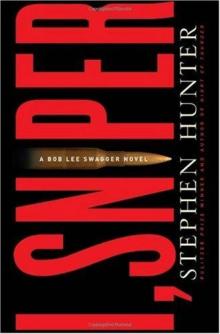 I, Sniper
I, Sniper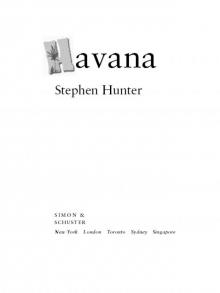 Havana
Havana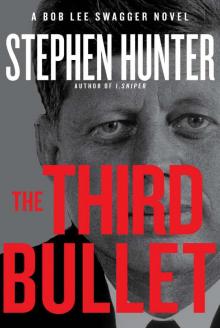 The Third Bullet
The Third Bullet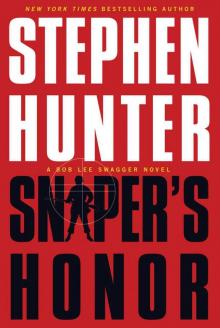 Sniper's Honor: A Bob Lee Swagger Novel
Sniper's Honor: A Bob Lee Swagger Novel Dirty White Boys
Dirty White Boys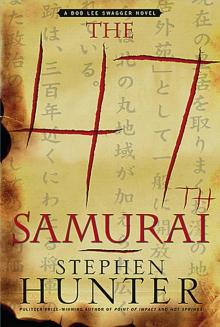 The 47th Samurai
The 47th Samurai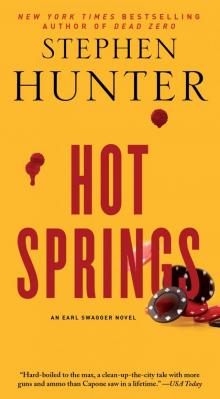 Hot Springs
Hot Springs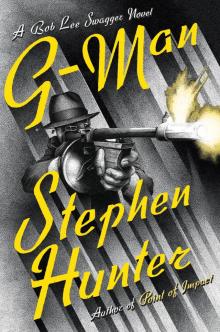 G-Man
G-Man Black Light
Black Light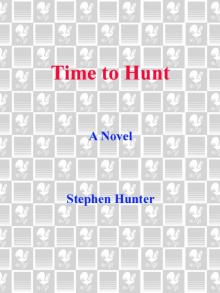 Time to Hunt
Time to Hunt The Day Before Midnight
The Day Before Midnight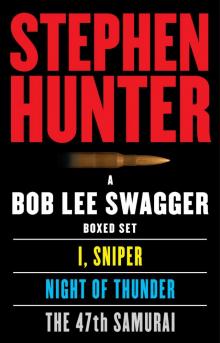 A Bob Lee Swagger Boxed Set
A Bob Lee Swagger Boxed Set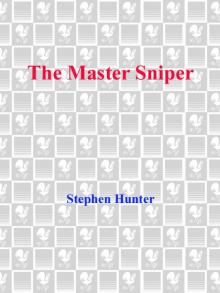 The Master Sniper
The Master Sniper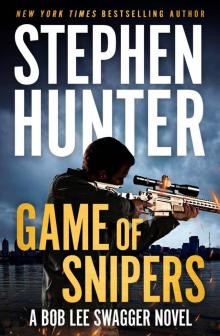 Game of Snipers
Game of Snipers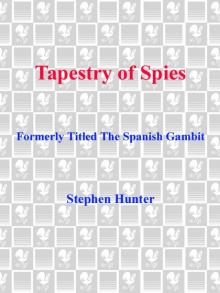 Tapestry of Spies
Tapestry of Spies Citadel
Citadel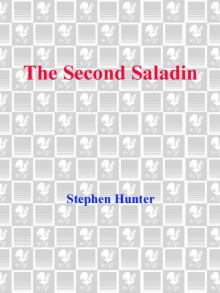 The Second Saladin
The Second Saladin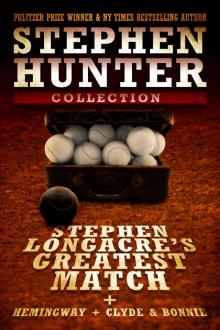 Stephen Longacre's Greatest Match
Stephen Longacre's Greatest Match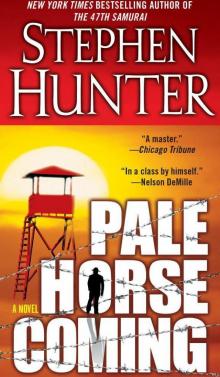 Pale Horse Coming
Pale Horse Coming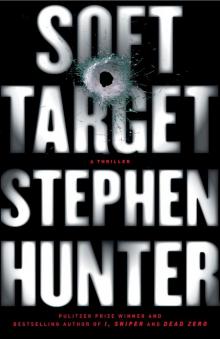 Soft Target
Soft Target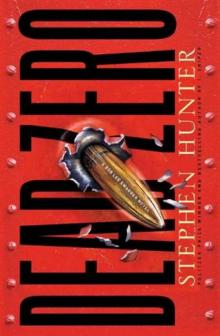 Dead Zero
Dead Zero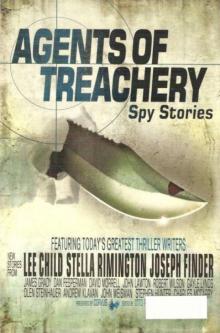 Casey at the Bat
Casey at the Bat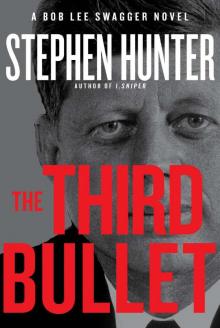 The Third Bullet bls-8
The Third Bullet bls-8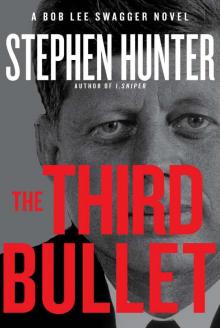 The Third Bullet: A Bob Lee Swagger Novel
The Third Bullet: A Bob Lee Swagger Novel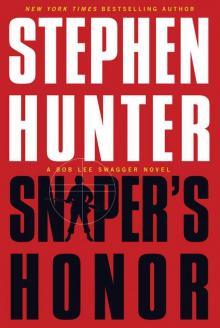 Sniper's Honor
Sniper's Honor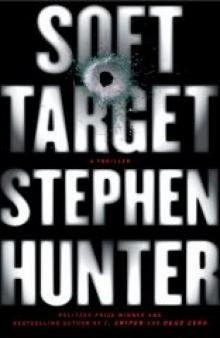 Soft target rc-1
Soft target rc-1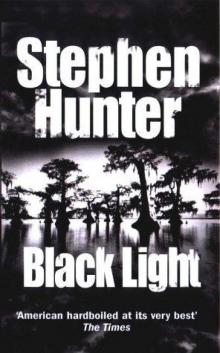 Black Light bls-2
Black Light bls-2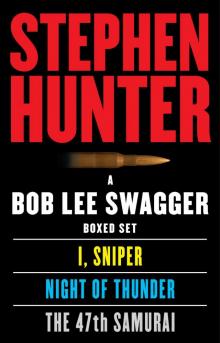 A Bob Lee Swagger eBook Boxed Set: I, Sniper, Night of Thunder, 47th Samurai
A Bob Lee Swagger eBook Boxed Set: I, Sniper, Night of Thunder, 47th Samurai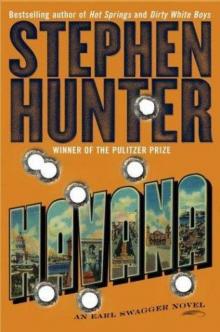 Havana es-3
Havana es-3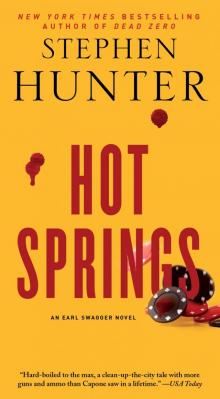 Hot Springs (Earl Swagger)
Hot Springs (Earl Swagger)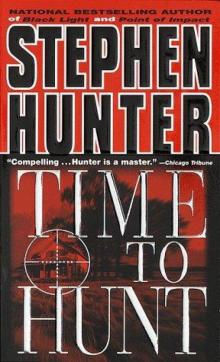 Time to Hunt bls-1
Time to Hunt bls-1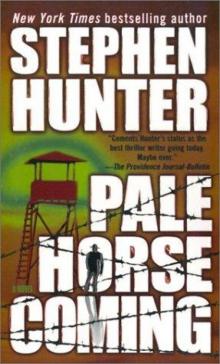 Pale Horse Coming es-2
Pale Horse Coming es-2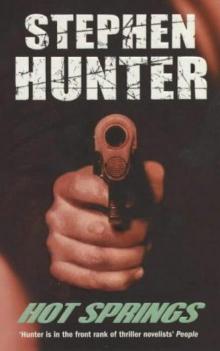 Hot Springs es-1
Hot Springs es-1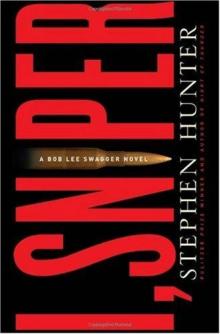 I, Sniper: A Bob Lee Swagger Novel
I, Sniper: A Bob Lee Swagger Novel